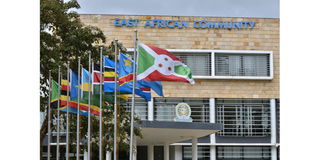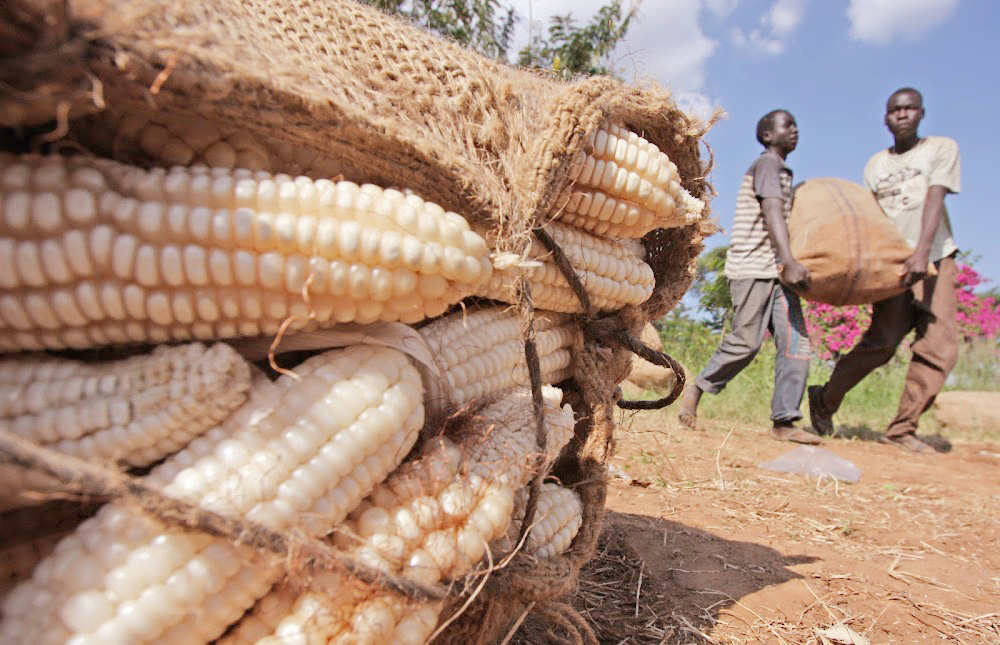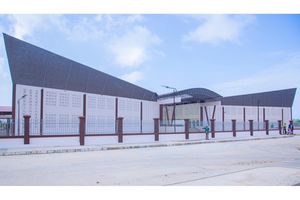EAC member states fill coffers, but remittance concerns remain

EAC headquarters
What you need to know:
- At least 58 percent of $51.4 million that must be paid by the seven member countries for 2023/24 had been settled by last month
Arusha. After years of delayed remittances of budget funds, the East African Community (EAC) may now sigh a relief from the anguish.
Until last month, most of the partner states had honoured their contributory obligations for the current financial year.
At least 58 percent of $51.4 million that must be paid by the seven member countries for 2023/24 had been settled by last month.
The money remitted to the Arusha coffers so far amounted to $29.8 million, according to a report seen by The Citizen.
Each of the eight member countries - save for Somalia, the new entrant - has to contribute $ 7.3million each for the current EAC budget.
The EAC tabled a budget of $103.8 million in June for the 2023/24 financial year ending June 30th next year.
While a total of $51.4 million will be a combined contribution by the seven states, the remainder (about $52million) will be raised by development partners.
A report from the East African Legislative Assembly (Eala) signalled better times for the EAC which has been grappling with the financial crisis.
"Over the past one month, most of the partner states had honoured their contributory obligations," said Eala Speaker Joseph Ntakarutimana.
He revealed this during a recent meeting of the Bureau of EAC Speakers of National Legislature and Eala held in Juba, South Sudan.
He said the status of the partner states' contribution to the EAC coffers as of November 15th, 2023 was satisfactory.
While Kenya has paid its contribution for 2023/24 in full (100 percent), Tanzania has settled 98 percent of $7.3million mandatory for each country to remit for the fiscal year in question.
A breakdown indicated that Tanzania had by last month paid $7.2 million (98 percent) and Kenya $7.3million (100 percent).
Incidentally, South Sudan ranked high among the seven partner states in remitting budget funds this time around.
By last month, Juba had remitted $6million or 83 percent of what it is owed by the EAC for budget support in the current fiscal year.
It is a rather surprising development for the country not known to have remitted anything to the EAC budget since it joined the bloc in 2016.
But there was a reason. It followed a recent waiver of outstanding arrears owed the EAC by Juba for all years, amounting to about $30 million.
"South Sudan has so far paid $7million to the EAC," said Ms Jema Nunu Kumba, the Speaker of the Transitional National Legislative Assembly of South Sudan.
She told the meeting of the Speakers' Bureau that her country was committed to pay its membership fees so as to remain on board.
Uganda, the EAC founder member alongside Tanzania and Kenya, has also done well with its remittances for the 2023/24 financial year.
It has settled some $6 million or 82 percent of $7.3million it is obliged to remit for the fiscal year in question.
Burundi, which some years ago was notorious for delayed payment, has settled $3.1 million as is Rwanda which remits funds to Arusha on quarterly basis.
The Democratic Republic of Congo (DRC), which joined the Community in March last year, has not made any remittance to the EAC coffers so far.
The $103.8 million EAC budget estimates for 2023/24 were tabled before Eala by the former Burundi minister for EAC Affairs Amb. Dr Ezéchiel Nibigira, who said that the budget estimates on June 13th.
He said despite the global economic shocks compounded by effects of Covid-19 and climate change, the region's economies were improving.
“Despite these challenges, economic growth in the region improved to 4.8 percent in 2022 from 3.5 percent in 2021.
"The strong growth in the region was supported by the good performance of the industry, services, construction, mining and manufacturing sectors,” he said.
Mr Nibigira projected a positive outlook for EAC economies, largely driven by the strong performance of the services sector, prudent government policies and increased public and private investment.
“However, downside risks remain, attributed to weaker global growth, tight financial conditions and climate change risks,” said the minister.




